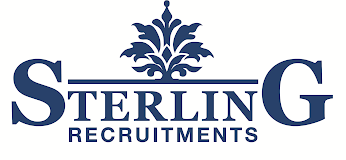An Introduction to Modern Slavery
Modern slavery is a crime and a violation of fundamental human rights. It takes various forms, such as slavery, servitude, forced and compulsory labour and human trafficking, all of which have in common the deprivation of a person’s liberty by another in order to exploit them for personal or commercial gain.
Sterling Recruitments UK LTD Commitment
Sterling Recruitments UK LTD would like to outline within this statement, our commitment to tackling all forms that modern slavery can take, not only within our own organisation, but also, by reporting any suspicions we have regarding individuals or companies to the relevant authorities.
We recognise that any recruitment costs are incurred as a business expense, and under no circumstances will any fees be charged to any of our workers in order to provide them with work.
Responsibility for Enforcement of our policies and procedures
Although we do not currently supply what are considered the high-risk industries, such as agriculture and food production, as a labour supplier, we must be aware of the potential red flags involved with modern slavery. Polly Sturgess, our Operations Director has overall responsibility to ensure the relevant procedures are in place in order to detect any potential cases of modern slavery or human trafficking. Should any of our staff believe there is any possibility an individual is being coerced in any way, they are to report their suspicions immediately to the Operations Director, as well as any supporting evidence, who will then report it to the relevant authorities.
Modern slavery can take many forms and although we have been fortunate not to have encountered any suspected cases, that does not mean that we must be consistently vigilant and review our training and procedures to ensure we are always making all of our staff aware of the potential warnings signs of modern slavery or human trafficking.
There can be many, often subtle, signs indicating that someone is being coerced in some way, these can include, but are not limited to, the following:
- Individuals outside of the organisation attempting to introduce 3 or more potential candidates at the same time;
- Individuals always speaking for other workers, or waiting nearby when certain workers are being spoken to;
- Workers appearing frightened or agitated;
- Workers showing signs of injury or malnourishment or no money for food;
- Workers are dropped off and collected from work by the same individual, possibly with workers from other sites;
Practical Steps to detecting Modern slavery or human trafficking
- Individuals must be interviewed alone
- They are encouraged to get their own telephone number as soon as possible, if using the phone number of someone else
- Individuals must complete their registration process in person
- Individuals are encouraged to open their own bank account as soon as possible, if using the account of another person
- Onsite Management to regularly have 1-2-1 conversations with workers to enquire after their wellbeing
- It will be investigated should an individual introduce several other individuals to the business
As a Member of the REC, we access to guidance notes on recognising potential Modern slavery and Human trafficking. We also recognise and have applied a number of suggestions for the Stronger2gether initiative, where deemed appropriate. As well as referring to the Home Office’s own guidance notes.
